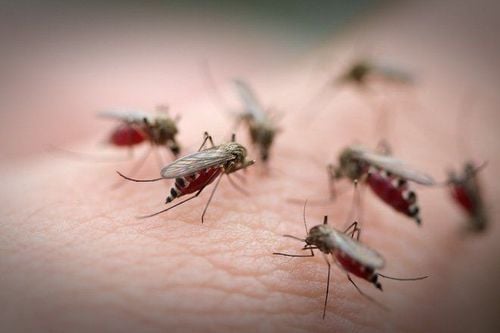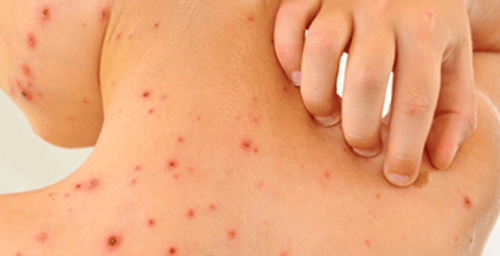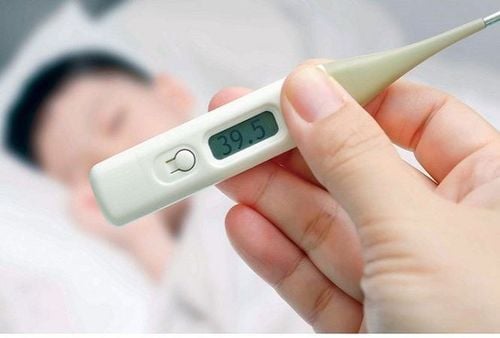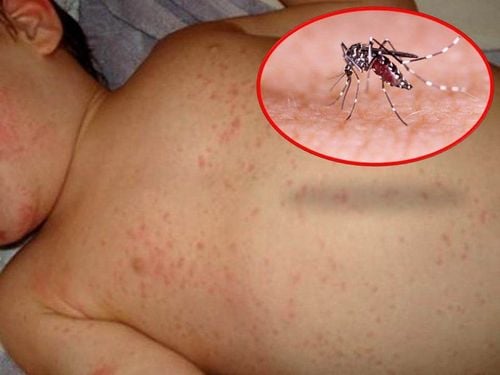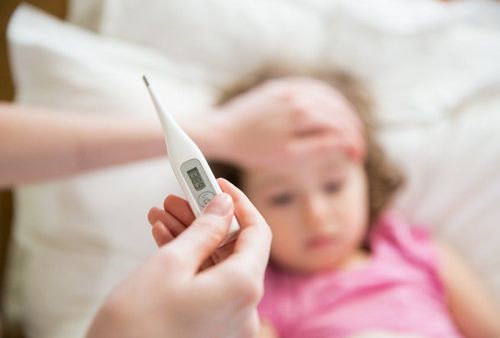Nosebleeds are one of the dangerous complications of dengue fever, especially dengue fever caused by the Dengue virus. If not diagnosed early and treated promptly, dengue fever can lead to death.
1. What is Dengue fever?
Dengue fever is a viral infectious disease caused by the Dengue virus. This virus is transmitted from an infected person to a healthy person through the bite of an Aedes aegypti mosquito. Although the disease occurs year-round, it is most common during the rainy season, which is when Aedes aegypti mosquitoes breed and develop. Both adults and children are at risk of contracting this disease.
2. Clinical manifestations and complications of Dengue fever
The clinical manifestations of Dengue fever are very diverse. The progression of the disease is also very rapid, ranging from mild to severe.
Typically, the disease begins suddenly and progresses through three stages: the febrile phase, the severe phase, and the recovery phase.
Early detection and a clear understanding of the clinical manifestations of each stage will help in accurate diagnosis and timely treatment, reducing the risk for the patient.
2.1 Febrile phase (lasting 3-4 days)
Sudden high fever and continuous fever. Loss of appetite, nausea. Subcutaneous bleeding, nosebleeds, or gum bleeding. Headache, pain in both eyes. Muscle and joint pain. Congested skin. Positive tourniquet test.

2.2 Severe phase
The critical phase of the disease usually occurs between days 3-7 of illness and is characterized by the following clinical manifestations:
The patient may still have a fever or the fever may have reduced.
Dengue fever patients experience plasma leakage due to increased vascular permeability (typically lasting 24-48 hours):
Pleural effusion, interstitial fluid, ascites, liver enlargement, periorbital edema, which may be painful. Excessive plasma leakage can lead to shock (cardiovascular collapse), with symptoms such as fatigue, restlessness, cold hands and feet, cold and clammy skin, rapid and weak pulse, narrowed blood pressure, and unmeasurable blood pressure. Low blood pressure or hypotension, decreased urine output. Bleeding may occur at sites such as:
Subcutaneous bleeding: Small spots or patches of bleeding scattered on the front of the lower leg, inner arm, abdomen, thighs, ribs, or forming bruises. Mucosal bleeding: Nosebleeds, gum bleeding, blood in urine. Prolonged or irregular menstrual cycle. Internal bleeding: In the digestive system, lungs, and most severely in the brain. In some severe cases, dengue patients may experience organ failure, such as severe hepatitis, encephalitis, or myocarditis. However, these symptoms may occur in some patients without obvious plasma leakage signs or in shock.
2.3. Recovery phase (lasting approximately 48-72 hours)
After 24-48 hours in the severe phase, the patient shows signs of gradually reabsorbing fluid from the interstitial tissues back into the bloodstream. In this phase, the patient may exhibit some clinical symptoms such as:
No fever, improved general condition, stable hemodynamics, frequent urination. There may be a feeling of increased appetite. An electrocardiogram (ECG) may show a slower heart rate and changes. Excessive perfusion during this phase can lead to pulmonary edema or heart failure in dengue patients.
3. How is Dengue fever treated?
According to the World Health Organization (WHO), Dengue fever is classified into 3 levels (2009), which are: Mild Dengue fever, Dengue fever with warning signs, Severe Dengue fever
Treatment varies depending on the severity of the disease. In the treatment of Dengue fever, most cases involve symptomatic treatment, outpatient care, and close monitoring at healthcare facilities to detect and treat shock promptly.
Symptomatic treatment:
When a patient with Dengue fever has a high fever (≥ 39°C), they should be given antipyretic medication, wear light clothing, and be sponged with warm water. The recommended antipyretic is paracetamol (acetaminophen), with a dose of 10 to 15 mg/kg body weight per dose, every 4-6 hours. It is important to note that the total dose of paracetamol should not exceed 60 mg/kg body weight per 24 hours.
Specifically, aspirin (acetylsalicylic acid), analgin, and ibuprofen should not be used as they may cause bleeding and acidosis.
Oral rehydration: Dengue patients are encouraged to drink plenty of oral rehydration solutions (ORS) or boiled and cooled water, fruit juices such as coconut water, orange juice, lemon juice, etc., and thin porridge with salt. For other levels of severity, the patient should be hospitalized and treated according to the Ministry of Health's treatment protocol.

4. When should a Dengue fever patient be taken to the hospital?
When warning signs appear, such as:
Abdominal pain, nausea, or vomiting. Mucosal bleeding. Drowsiness, fatigue, lethargy, restlessness. Lower right abdominal pain. The patient is overweight or obese.
The patient should be taken to the nearest hospital or healthcare facility immediately for monitoring and timely treatment by a doctor, to avoid being admitted in a state of cardiovascular collapse. This way, the treatment method will lead to better outcomes.
To arrange an appointment, please call … or make your reservation directly HERE. You may also download the MyVinmec app to schedule appointments faster and manage your reservations more conveniently





